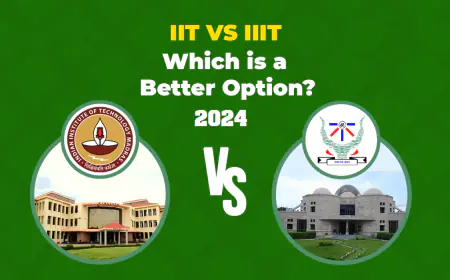D Pharma vs. B Pharma in 2024: Navigating the Pharmaceutical Career Landscape
Explore the decision between D Pharma and B Pharma in 2024, with insights into career opportunities, education depth, and licensure, helping aspiring pharmaceutical professionals make informed choices.

Introduction
In the ever-evolving world of healthcare and pharmaceuticals, making the right educational choice is crucial for aspiring professionals. In 2024, the choice between pursuing a Diploma in Pharmacy (D Pharma) and a Bachelor of Pharmacy (B Pharma) has become more critical than ever. These programs offer unique paths to a career in pharmacy, and your decision will significantly impact your future. In this article, we will explore the differences between D Pharma and B Pharma and provide insights to help you make an informed decision in the context of 2024.
D Pharma: The Diploma in Pharmacy
D Pharma is a two-year diploma program that provides students with fundamental knowledge and practical skills in pharmacy. It is an option for those who want to enter the pharmaceutical field quickly and work as pharmacy technicians or assistants. Here are some key aspects of the D Pharma program in 2024:
1. **Entry-Level Education**: D Pharma is designed as an entry-level program for pharmacy professionals. It equips students with the essential knowledge and skills to work in pharmacies and related healthcare settings.
2. **Practical Skills**: The program emphasizes hands-on training, teaching students how to dispense medications, manage inventory, and assist pharmacists in their daily tasks. This practical experience is valuable for immediate job readiness.
3. **Career Opportunities**: D Pharma graduates often find employment in retail and hospital pharmacies, pharmaceutical companies, and drug regulatory agencies. Their roles primarily revolve around assisting pharmacists, dispensing medications, and ensuring patient safety.
4. **Quick Entry into the Workforce**: D Pharma programs are shorter in duration, allowing students to enter the workforce sooner compared to B Pharma. This can be advantageous if you want to start your career as quickly as possible.
B Pharma: The Bachelor of Pharmacy
B Pharma is a full-fledged, four-year undergraduate program that offers a more comprehensive education in pharmaceutical sciences. It prepares students for a wide range of roles within the pharmaceutical and healthcare industry. Here are some key aspects of the B Pharma program in 2024:
1. **Comprehensive Pharmaceutical Education**: B Pharma programs cover a broad spectrum of pharmaceutical subjects, including pharmacology, pharmaceutical chemistry, pharmacognosy, and pharmacy practice. This comprehensive education prepares students for diverse roles in the pharmaceutical sector.
2. **In-Depth Scientific Knowledge**: B Pharma students gain a deeper understanding of the scientific and technical aspects of drug development, formulation, and quality control. This knowledge is valuable in research and development roles.
3. **Professional Licensure**: B Pharma graduates are often eligible to apply for professional licensure and work as licensed pharmacists. This qualification allows them to assume a more extensive set of responsibilities, including counseling patients and managing pharmacy operations.
4. **Research and Development**: B Pharma graduates can pursue careers in pharmaceutical research, drug development, regulatory affairs, and academia. The program provides a strong foundation for those interested in contributing to innovations in the pharmaceutical industry.
Choosing Between D Pharma and B Pharma
The choice between pursuing a D Pharma or a B Pharma in 2024 depends on your career goals, interests, and the following factors:
1. **Immediate vs. Long-Term Goals**: If you want to start your career quickly and prefer hands-on work in a pharmacy setting, D Pharma may be the right choice. However, if you aspire to become a licensed pharmacist or engage in pharmaceutical research, B Pharma is the more suitable option.
2. **Depth of Knowledge**: D Pharma offers foundational knowledge, while B Pharma provides an in-depth understanding of pharmaceutical sciences. Consider how much you want to learn and the level of responsibility you aim to undertake.
3. **Professional Licensure**: If you desire to become a licensed pharmacist, B Pharma is typically the prerequisite. Check the licensing requirements in your region to determine the qualifications needed.
4. **Career Flexibility**: B Pharma graduates have a broader range of career options, including research, development, and academia, in addition to pharmacy practice. D Pharma graduates may find themselves more limited in their career scope.
5. **Duration and Commitment**: B Pharma is a longer program, and the commitment required is higher. Consider your willingness to invest time and effort in your education.
Conclusion
In 2024, the decision between D Pharma and B Pharma is pivotal, as it shapes your pharmaceutical career. Your choice should be driven by your career aspirations, interests, and the level of commitment you are willing to make. If you're eager to enter the workforce quickly and prefer a hands-on role in pharmacy, D Pharma may be the right choice. On the other hand, if you aim to become a licensed pharmacist, pursue research and development opportunities, or engage in academia, B Pharma provides the comprehensive education you need. Research the specific requirements and job prospects in your desired region to make the best choice for your pharmaceutical career.









































